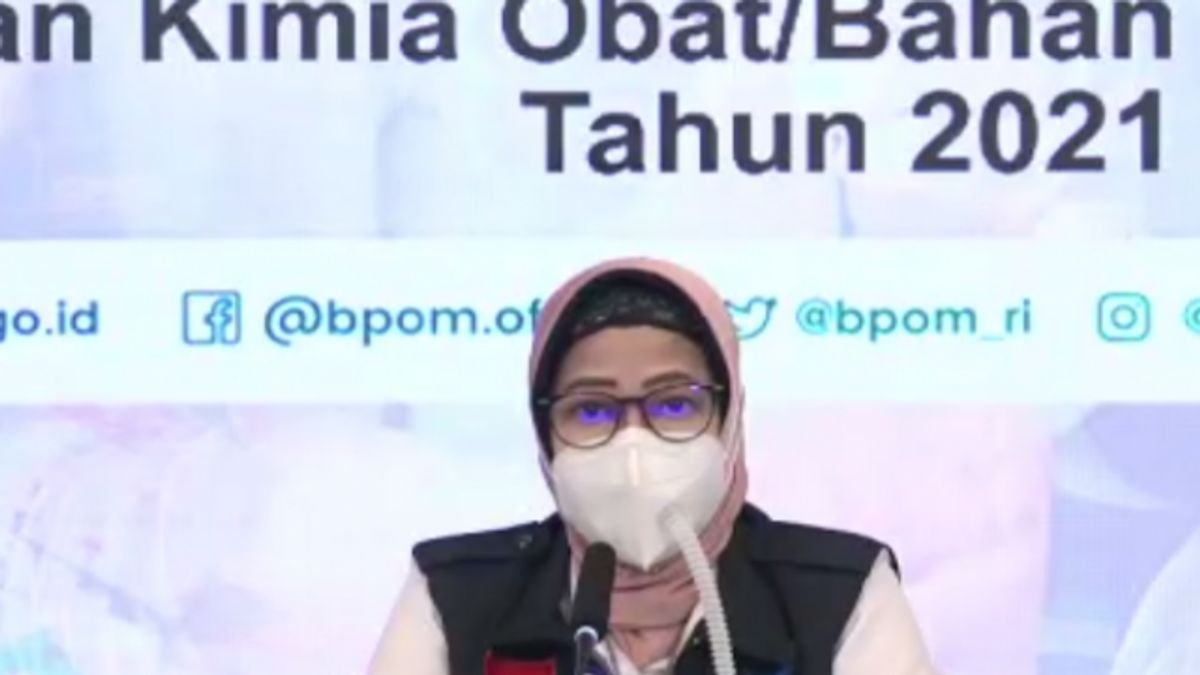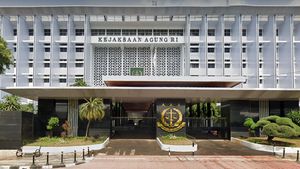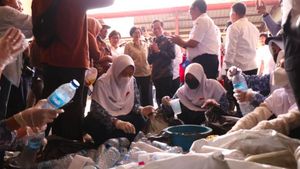JAKARTA - The Indonesian Food and Drug Supervisory Agency (BPOM) destroyed traditional medicines containing chemical medicinal ingredients with an economic value of Rp. 21.5 billion.
"The destruction of products with an economic value of Rp. 21.5 billion and the cancellation of 27 product distribution license numbers and as many as 69 cases have been processed pro-judicially," said Deputy for Supervision of Traditional Medicines, Health Supplements, and Cosmetics of BPOM RI, Reri Indriani at a Public Press Conference. Warning of Traditional Medicines, Health Supplements, and Cosmetics in Jakarta, Wednesday 13 October.
In relation to efforts to protect public health from the safety risks of traditional medicinal products, health supplements and cosmetics in circulation, BPOM routinely conducts product sampling and testing activities as well as monitoring product side effects.
The sampling and testing activities are intended to determine whether the products produced, circulated and consumed by the public are harmful to health or not, because they may contain medicinal chemicals or prohibited substances or hazardous materials that were not approved at the time of registration.
On the other hand, BPOM received reports from friendly countries regarding the circulation of 202 items of traditional medicine and health supplements and 97 items of cosmetics containing medicinal chemicals, prohibited substances or hazardous materials.
In following up on the findings of traditional medicines, health supplements and cosmetics that are illegal or contain medicinal chemicals or prohibited substances or hazardous materials, and reports from some of these countries, BPOM conducts market cleaning by carrying out controls on production and distribution facilities, issuing orders for product withdrawals and destruction, cancel the distribution permit number, and also carry out a pro-justitia process by the BPOM Civil Servant Investigator (PPNS) if there are indications of a crime.
For traditional medicines and health supplements, based on the results of the follow-up activities during July 2020-September 2021, inspections have been carried out on 3,382 production and distribution facilities of traditional medicines and health supplements.
The highest court decision was in the form of imprisonment for two years and a fine of Rp. 250 million, subsidiary to three months' imprisonment.
For cosmetics, inspections have been carried out on 4,862 production and distribution facilities, destruction of products with an economic value of Rp42 billion, and cancellation of 18 product distribution license numbers, and as many as 89 cases have been processed pro-justically.
The highest court decision for the cosmetic case is in the form of imprisonment for two years and a fine of Rp. 25 million, subsidiary of two months in prison.
Furthermore, BPOM educates and urges the public to always remember Cek Klik, which is a check on packaging, labels, distribution permits and product expiration.
"Make sure that the packaging of the product purchased and will be consumed is in good condition, then it is necessary to read the product information listed on the label so as to avoid improper use, and check whether it has a BPOM distribution permit, and does not exceed the expiration date," said Reri, quoted by Antara. from Between.
The English, Chinese, Japanese, Arabic, and French versions are automatically generated by the AI. So there may still be inaccuracies in translating, please always see Indonesian as our main language. (system supported by DigitalSiber.id)













